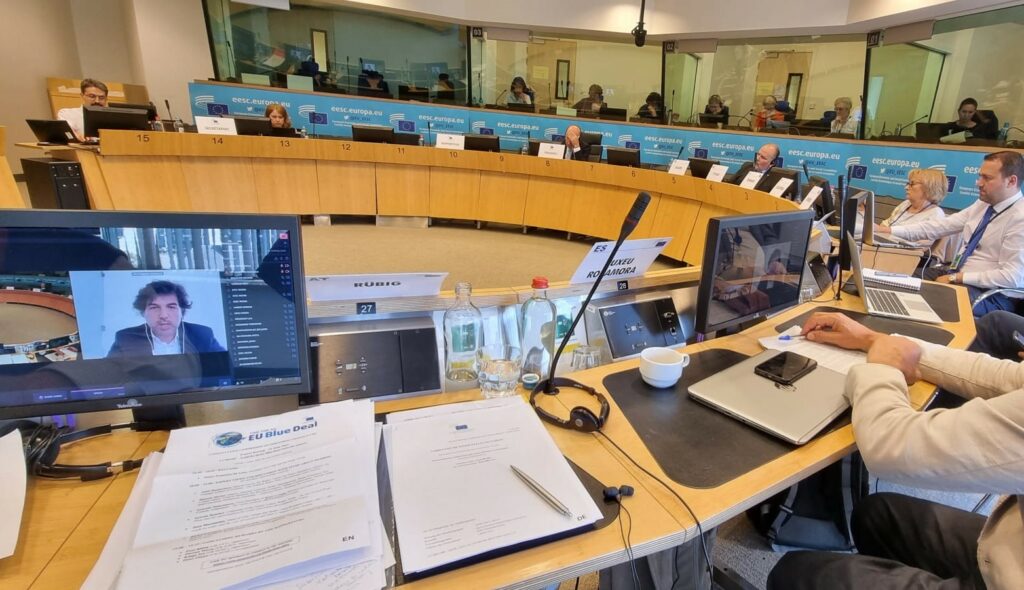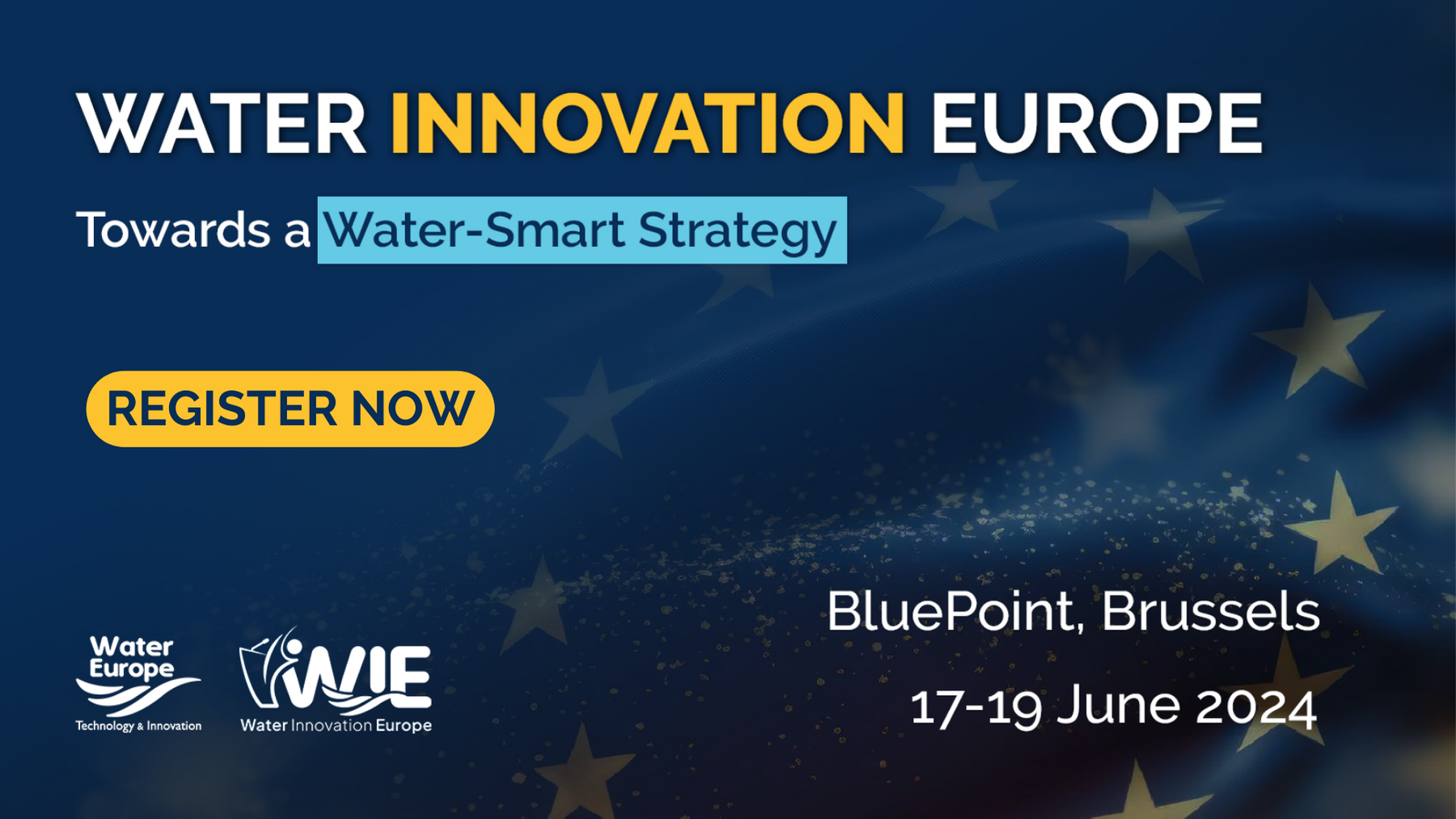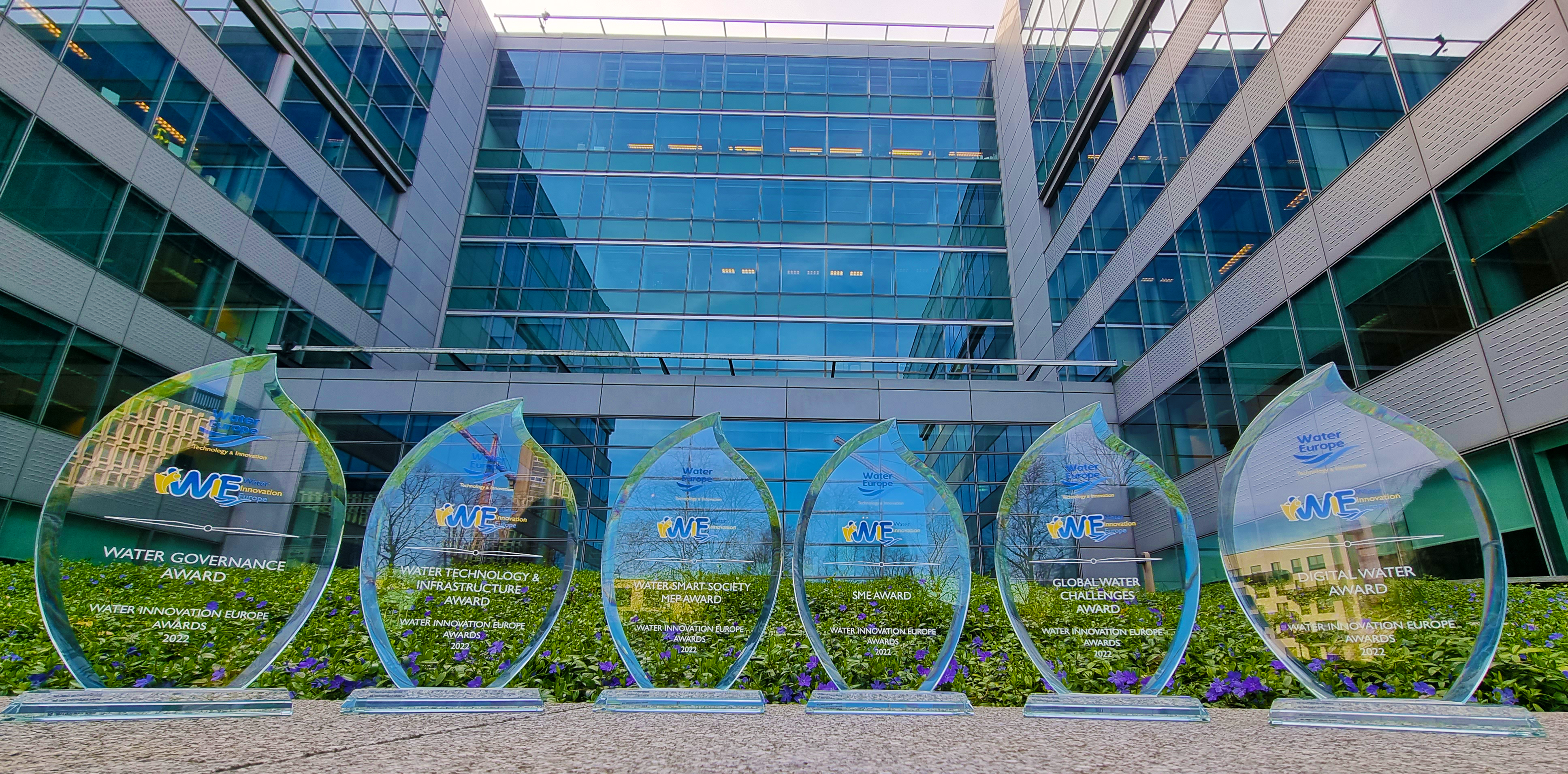On the 16th of June, Gonzalo Delacámara, Water Europe 1st Vice President & Director of IE Centre for Water & Climate Adaptation discussed the current key challenges linked to water policies and the economics of water, at the expert hearing “a Call for an #EUBlueDeal” held at the European Economic and Social Committee.
To frame his intervention, Gonzalo emphasised on the need to move away from a short-sighted approach to the delivery of water services to a broader and more ambitious one dealing with ensuring long-term water security within the context of climate change adaptation.
A very practical implication of this is the need to understand the need to move beyond an investment model that still may be needed in some eastern Member States of the EU and has proved very successful in delivering universal coverage of water and sanitations services for most EU MS. That model was based on bridging gaps in term of coverage (thus biased towards investments in conventional infrastructures: public water distribution networks, sewerage networks, wastewater treatment plants, etc.). The current challenge calls for a new investment model, one based on enhanced water use efficiency and the diversification of water supply sources (mostly through reclaimed wastewater and stormwater reuse and desalination of brackish and saltwater).
Gonzalo feels it’s critical to connect water policy objectives (i.e., drought and scarcity management, flood and flood risk management, tackling water quality degradation, halting aquatic biodiversity and ecosystem services loss) to wider social and economic (development) objectives: social and spatial cohesion, geographical location of critical economic activities, macroeconomic performance, social equity, food security worldwide, energy security, public health, climate change mitigation and adaptation, etc.
Connecting water policy and wider development objectives is far from being just a rational choice; it’s a logical need, as it was shown with examples from the critical drought event in Europe during summertime in 2022, which affected many EU MS and critical waterways such as the Rhine, the Elbe or the Danube, disrupting critical supply chains such as those of semi-conductors, fertilisers or natural gas, in the midst of a worldwide food security crisis and the worst energy crisis in 50 years.
Critical deficits lie on governance, rather than on the lack of financial resources or technology. Water governance, though, is not just about transparency, accountability, integrity, and meaningful stakeholder engagement, all of them critical and highly important. It’s not also only about having sound institutional setups. Enhanced water governance should be about redesigning incentives, creating the enablers for the uptake of innovations (technological, institutional, social, financial…), ensuring strategic financing, fostering sectoral policy coordination, etc.
Illustrations of meaningful policy efforts where, however, water economics is somehow downplayed if not overlooked at all.
Digitisation of the economy (and the water sector) is a key priority in the allocation of funds of the Resilience & Recovery Facility of Next Generation UE. The water sector is latecomer, but new technologies are here to stay (i.e., digital twins, cloud computing, a range of AI approaches, distributed ledgers of information, IoT, big data management, etc.). These new technologies, demanding massive public and private investment, will not deliver though if smart pricing schemes are not in place.
Many EU MS have made a remarkable effort in modernising irrigation systems (responsible for over 70% of water withdrawal worldwide and also in some of those countries). In some cases, tose efforts have made plots more efficient, but not necessarily river basins more sustainable, as there is evidence of rebound effects (through water productivity) or scale outweighs individual water efficiency gains.
Nature Based Solutions are a non-regret option. However, a number of lock-ins are to be overcome: financial (money tends to favour conventional infrastructures as yet and NBS projects do struggle sometimes to be bankable), institutional (often times, there is some inertia to foster grey infrastructures), and in terms of assessment (as NBS tend to be appraised as if natural capital assets were physical capital ones, which hinders their development).
Successful circular economy examples are pervasive but most of them tend to be at small scale. Upscaling is a challenge, and one that cannot be addressed in the absence of industrial symbiosis (mutually beneficial approaches), thus creating markets and aligning incentives for circularity approaches to deliver.
Some promising efforts as to the reclamation and reuse of water and the desalination of brackish and saltwater find it hard (if not impossible at all), to find an affective demand – the redesigning of incentives would be critical for this.
Zooming into the urban water cycle, given the need to meet human rights and the political and social sensitivities regarding household consumption.
The atomization of water services delivery systems in some countries is leading to a range of malfunctions. This may be an example of the dialectics between the subsidiarity principle and decentralisation versus further integration. The challenge seems very much one of ensuring enhanced coordination and supranational approaches, whilst respecting legal powers of local authorities.
Affordability concerns often take centre stage. This discussion often spotlights water tariff levels, when in fact most challenges have to do with exposure to social exclusion and poverty. There are clear opportunities to explore the role of tariff design to use water tariffs as a tool for social and spatial cohesion. Yet, affordability should also be considered at a higher level (PoMS under the WFD and the FD).
The urban water sector faces significant challenges in terms of asset replacement and management. New technologies will help, but strategic financing frameworks are a binding need.
Cost recovery is a critical element in the delivery of water services and water resources management, but it’s a means to an end. It’s important to convey that recovering costs should lead to enhanced resilience and security in the longer term and not just to self-sufficiency on financial grounds today.




